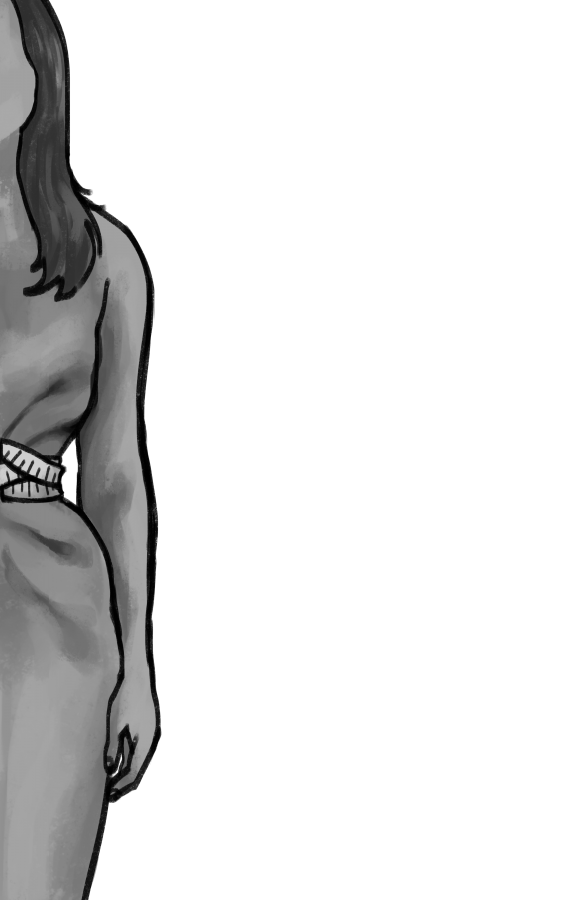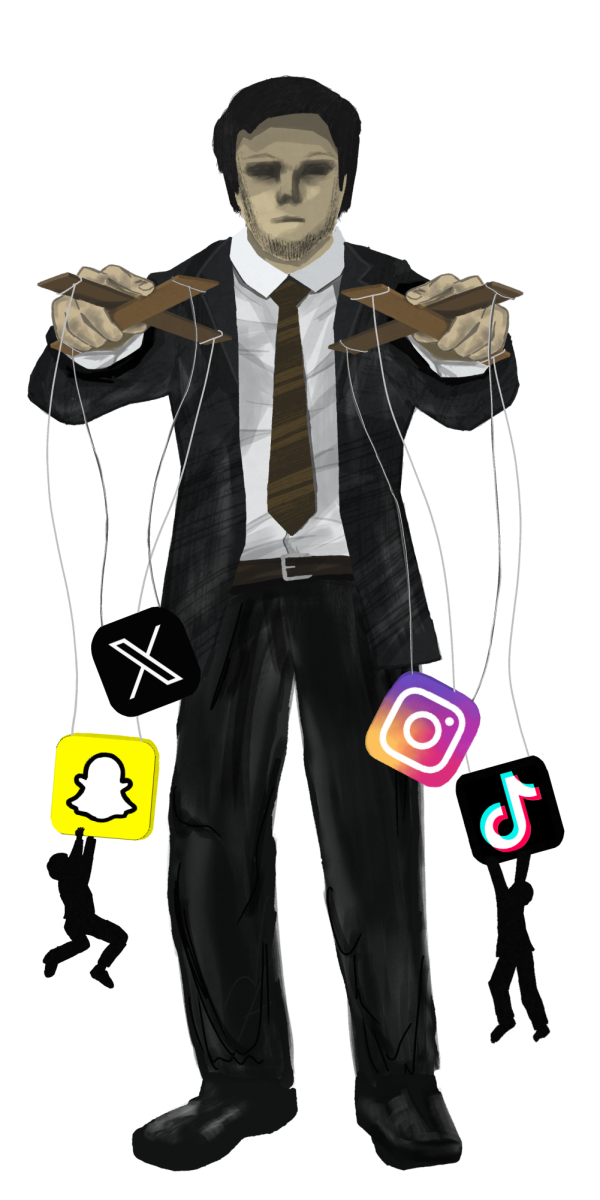Written by Kaya van der Horst
2016 seemed to be the year for body positivity. The diversity in body types seen on magazine covers, such as curvy model Ashley Graham’s notable cover shoot for Sports Illustrated and advertisements such as Dove’s empowering #mybeautymysay campaign, showed us that women were refusing to conform to a single standard of a beautiful body. Even the iconic Barbie doll released three new body types beyond its original stick-thin body frame: petite, tall and curvy. However, in efforts to accept and normalize curves, society has resorted to condoning skinniness through skinny-shaming. In light of messages such as “real women have curves,” women with slender body frames are finding it increasingly difficult to partake in the body positivity movement.
On a daily basis, people comment on the appearance of others, whether it be their outfits, hairstyles or body types. Most people are aware of the insensitivity of fat-shaming and would never dare comment on an increase in someone’s weight. When slender people embrace their figure, they are proclaimed to be distasteful because they are “promoting” eating disorders. So, why must slender people endure snarky comments made about their body when fat-shaming remains blatantly offensive? The body positive movement has begun to put skinny bodies down in order to accept larger figures, which is, while well-intentioned, totally misguided. In today’s society, skinny-shaming is a prevalent problem that needs to be taken just as seriously as fat-shaming.
Although women tend to dominate the conversation about body image, skinny shaming also affects men who are confronted with impossible expectations of being lean with lots of muscles. Muscle dysmorphia disorder (MDD), also known as “bigorexia,” is an obsessive-compulsive disorder in which people obsess about being too small and underdeveloped. According to Rob Wilson, chair of the Body Dysmorphic Disorder Foundation, at least 10 percent of men in gyms are believed to suffer from muscle dysmorphia in the United Kingdom. Common characterizations of MDD include excessive weight-lifting to increase muscle mass, disordered eating with extra protein supplements or steroid abuse. Pop culture has set unrealistic ideals in men through Halloween costumes, which often contain built-in padded muscles. This makes people with smaller figures, who don’t conform to that ideal, feel self-conscious and puts them at risk for developing MDD.
Normalized comments that critique people’s bodies no matter what body type they are contribute to body image issues and insecurities. Abrasive remarks such as “Wow, your legs are so skinny” or “Why don’t you eat something?” casually fly under society’s radar while leaving negative impacts on one’s emotional well-being. A paper published by the “Journal of Child Psychology and Psychiatry” in 2015 found that the combination of genetics, personality traits and environmental factors, such as having to endure constant comments about one’s body, all contribute to developing eating disorders. The National Eating Disorders Association also states that narrow definitions of beauty strongly correlate with eating disorders. Bashing one body type in order to promote another is not productive in fostering a healthy environment in which all shapes and sizes can flourish. Instead, it fuels a hostile atmosphere in which no body is deemed good enough. According to the Body Dysmorphic Disorder Foundation, one in 50 people suffer from body dysmorphic disorder, a body-image disorder characterized by persistent preoccupations by one’s perceived flaws.
This struggle with body dissatisfaction is only further amplified by the hypocrisy surrounding society’s “ideal” body shape. On one hand, people are insulted for being too fat, but on the other, people profess that “real women have curves.” These contradictory expectations create an outlet where skinny-shaming serves as a relief for frustration. Some may even go so far to state that being slender is synonymous with “thin-privilege.” The idea that being slender is a “privilege” and therefore justifies the acceptance of skinny-shaming is troubling. A common rejection of the existence of skinny-shaming is rooted in the belief that skinny people have no problems because society adores them. However, whether you think someone is perfect or not, everyone has their personal insecurities. While it is true that slender figures retain “privilege” in regard to conforming to societal standards and therefore not being ridiculed to the same extent as larger ones, no body should be judged or scorned. Body shaming remains hurtful experience for all body types. Unless you are their doctor, another person and their body are none of your business.
Slender body frames can often be subject to comments such as “Wow you’re so thin” or “You must be on a good diet.” Pop star Zendaya was publicly insulted for being skinny and accused of having an eating disorder after her appearance at the Kids’ Choice Awards in 2016. Carelessly throwing around terms such as “anorexia” or “diet” in context with slender people does no justice to the term itself and only further stigmatizes eating disorders. No one should have to justify their body shape. So much goes on behind the curtain of one’s public front, and society should not jump to hasty conclusions. Just as some people are genetically predisposed to have a larger frame, the same exists for smaller figures. Factors such as genetics, metabolism and lifestyle all play pivotal roles in physical looks. Athletes and dancers also often have fit figures, but these people should never be condemned for their appearance.
Overall, skinny-shaming normalizes body shaming, making it acceptable for people to dictate what others should and should not look like. Although it is important to achieve acceptance of all figures, no body should be celebrated at the expense of another—acceptance of larger figures should never be built on the premise of skinny-shaming.
Instead, the media and society should work on truly embracing all body frames. People need to practice ignoring the perceived issues of their body and learn to embrace every bit. But equally as important is to refrain from commenting on other people’s bodies—it’s rude and inappropriate.













mymanandme03 • Jun 19, 2017 at 1:55 am
I totally understand. An ex colleague told a business associate that I’m thin because I don’t eat!
Elaine • Mar 6, 2017 at 12:41 pm
Agree. I have always been short and petite. Growing up I heard “eat a sandwich” and “do you even eat?” all the time. It did a number on my self esteem when I was in middle school/high school. Even now, as an adult, I hear it from friends/family. They think they are joking but it does make one self conscious about their appearance. Never mind the fact that I have medical issues that makes it difficult for me to gain weight or to eat a lot. I hate eating out around others because I know they will mention the fact that I haven’t eaten all of my food and that’s why I’m skinny.